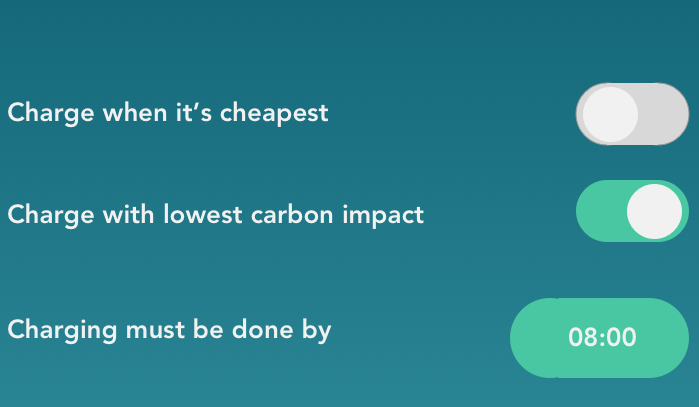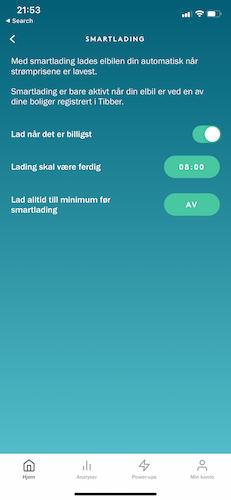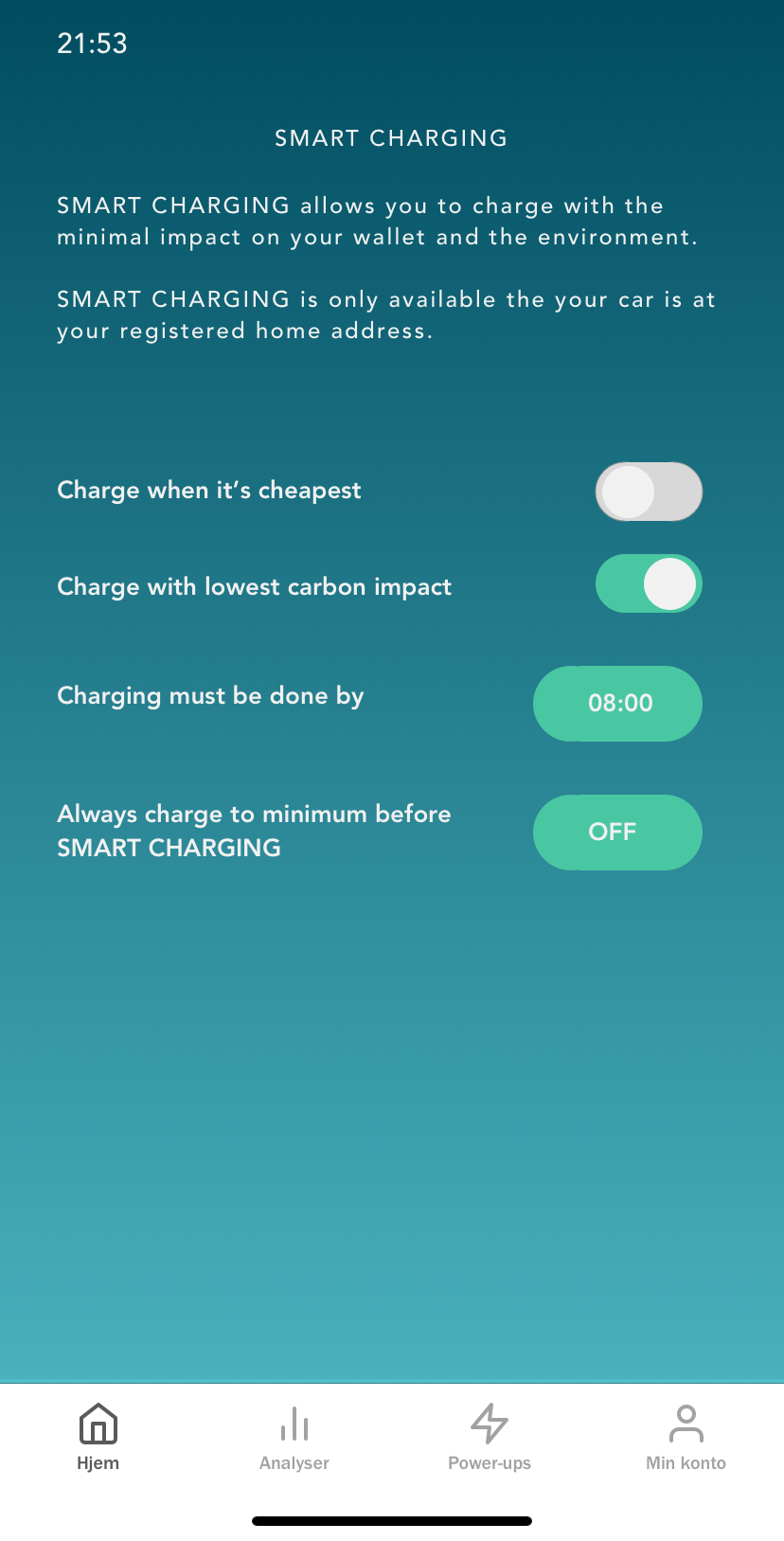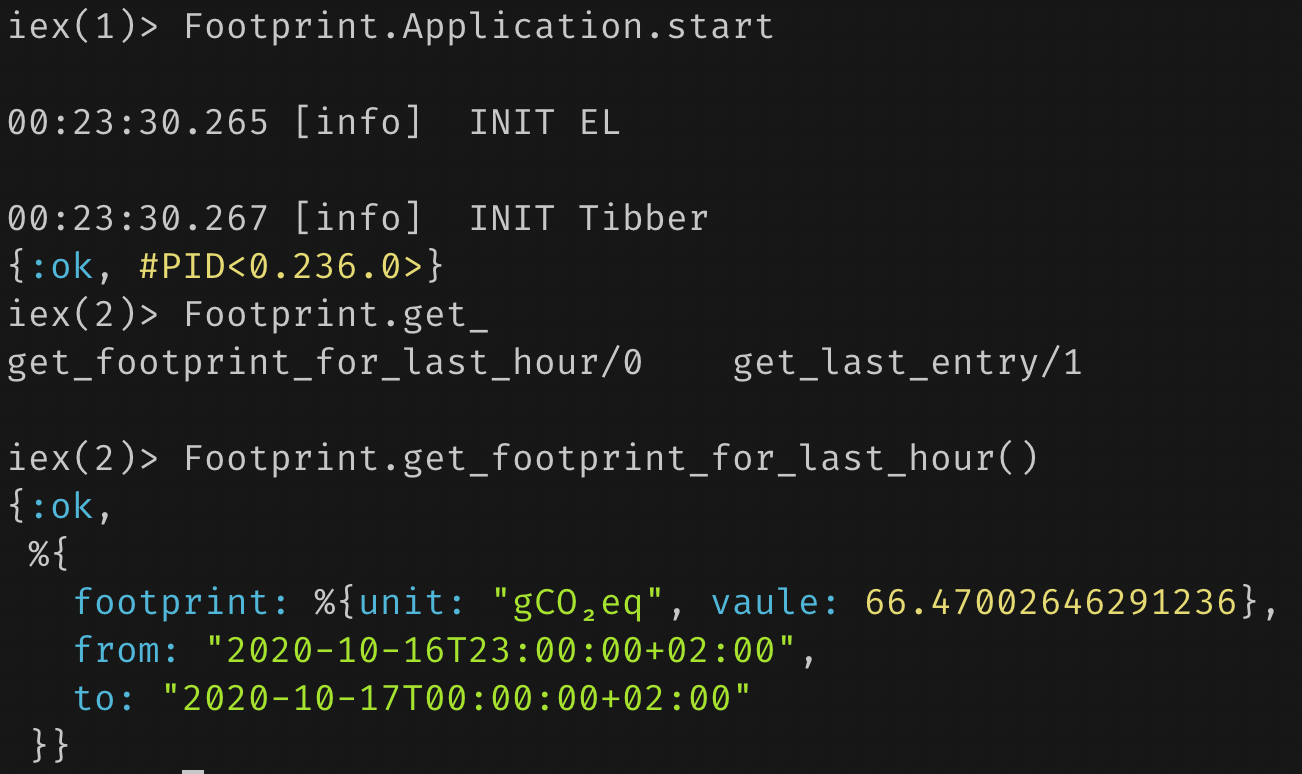Charging Your Car With Smallest Possible Carbon Footprint

I'm a firm believer that we need to do something about the climate crisis. But after following obvious advise like reducing heating in the house and use of fossil fuels, it's not always easy to know what to do or how.
Tibber and Tomorrow
Luckily there are people working to make it easier to make the right choices. My electricity supplier, Tibber, only buys electricity from renewable sources and integrates with smart devices in the home, including electric cars.

Tibber's "smart charging" feature is really nice. It uses the API of the car to automatically make a charging plan that will fill your battery for the least amount of money. It will also let you set a time where you need the car to be charged.
Least amount of CO₂, please
Saving money is always nice, but what if I care even more about the environmental impact of charging my car?
What I would like is a second toggle in the app that let's me do just that. I'm willing to pay a bit more if you can "magically" set my car to charge when the carbon impact will be the lowest.

But how?
Tibber can make the cheapest possible charging plan because the electricity prices are determined in advance. But this is not the case for the carbon profile. One can make good assumptions based on knowledge of a region's power generation. In combination with this one can deploy the magic of machine learning and prediction.
Enter Tomorrow
Tomorrow is the company behind electricitymap.org. Electricity Map collects carbon intensity data from regions around the world and displays it on a map in real time. That's super cool but we need a bit more. We need to see into the future!
Luckily Tomorrow offers just that via their API. This allows us to get a forecast for our region the next 24 hours, which should be sufficient to charge any car.
"Both, please"
Imagine that you care equally about your wallet and the carbon footprint of your charging. Could we implement our new Tibber feature in such a way that the to toggle buttons are not mutually exclusive?
The short answer is "yes". But we need to make some assumptions and/or let the user tells us how to weight the cost and the carbon intensity.
Charging Index (not patent pending)
In order to make a charging plan we need to assign some kind of rating to the hours we have available for charging. One way could be to compare the current price and carbon intensity with historic values for that given hour of the day.
So if we have a price of P euro/kWh and a carbon intensity I gCO₂eq/kWh. And a mean of historic prices P0 and intensities I0, we could devide the historic vaules with the current vaules. That would give us a situation where low vaules of P/P0 and I/I0 are favorable. These vaules can in turn be weighted to favor either prize or carbon intensity, or combined to find a sort of happy medium.
Work to be done
So how far is this from reality?
The technology is there! Tibber is constantly working to improve their integrations and Tomorrow is a well funded start-up looking to expand.
I have made a simple app that calculates the carbon footprint of my house on an hourly basis. No graphical user interface yet and lots of improvements to be made. But it's a start.

Unfortunatly Tomorrow's free API lacks documentaion on how to get forecasts, and the paid version is a bit too pricey for me as a private person. But I see a future where Tibber and Tomorrow gets together to implement this feature, or something like it.
🚗⚡🍀